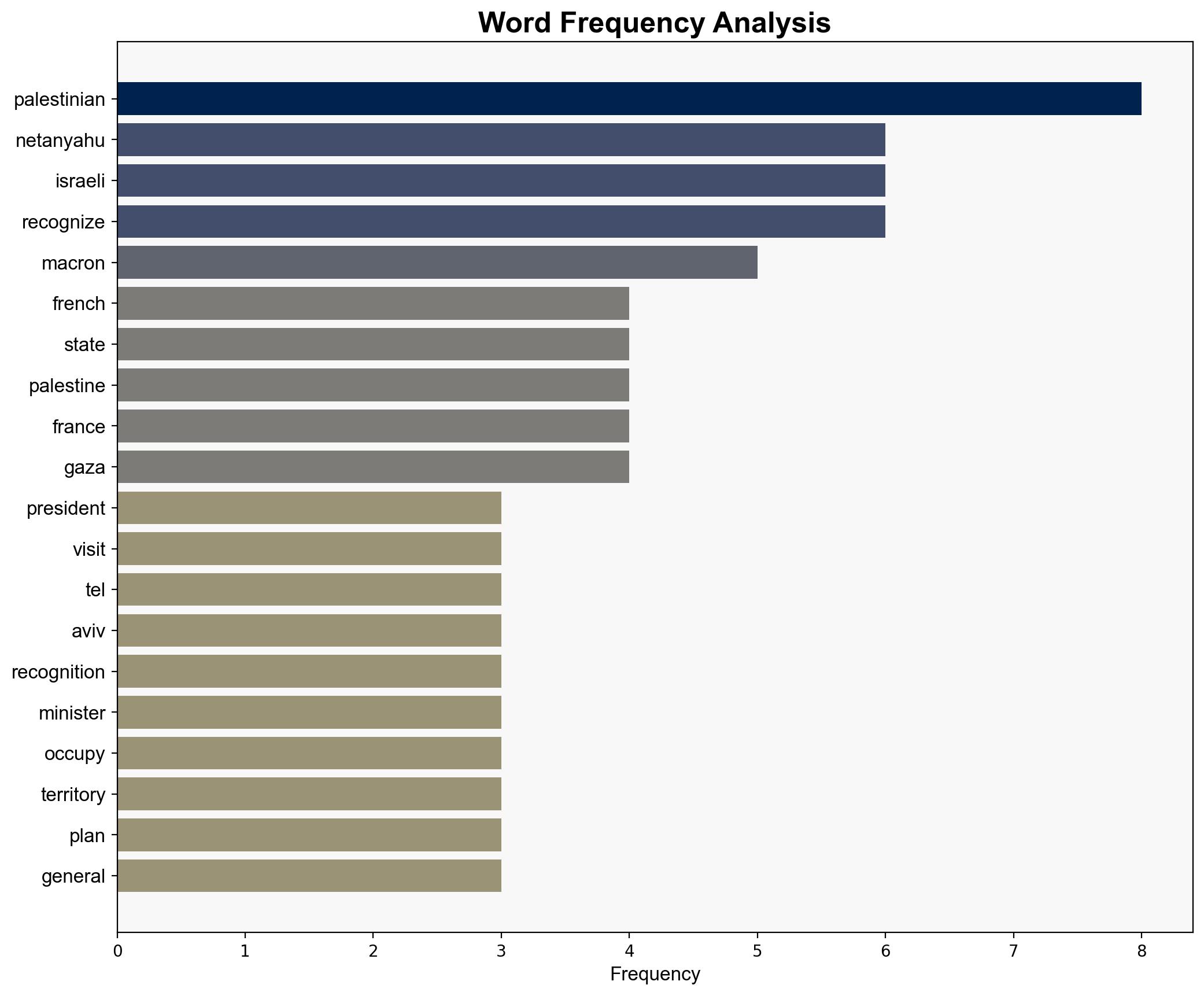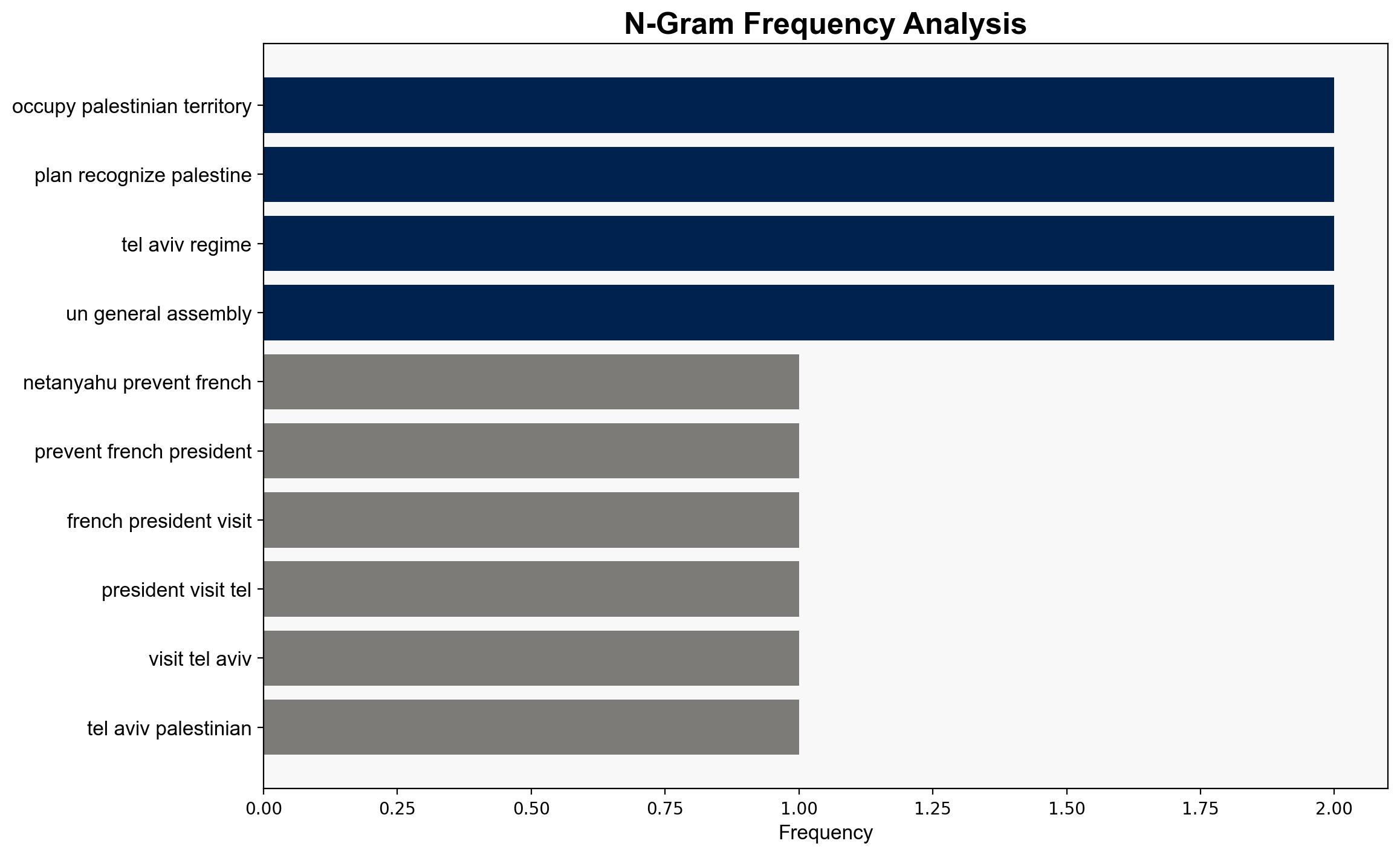Netanyahu prevents French president from visiting Tel Aviv over Palestinian state recognition dispute – Globalsecurity.org
Published on: 2025-09-06
Intelligence Report: Netanyahu prevents French president from visiting Tel Aviv over Palestinian state recognition dispute – Globalsecurity.org
1. BLUF (Bottom Line Up Front)
The most supported hypothesis is that Netanyahu’s decision to prevent Macron’s visit is a strategic maneuver to maintain Israel’s diplomatic stance against Palestinian state recognition. This is assessed with a moderate confidence level due to the complex geopolitical dynamics involved. It is recommended that stakeholders closely monitor international reactions and prepare for potential diplomatic fallout or shifts in alliances.
2. Competing Hypotheses
Hypothesis 1: Netanyahu’s actions are primarily driven by a strategic need to prevent international recognition of Palestinian statehood, which could undermine Israel’s geopolitical position and security concerns.
Hypothesis 2: The decision is a tactical move to exert pressure on France and other nations considering recognition of Palestine, aiming to influence their diplomatic decisions through direct confrontation and negotiation tactics.
3. Key Assumptions and Red Flags
Assumptions:
– Netanyahu believes that preventing Macron’s visit will effectively deter France from recognizing Palestine.
– Macron’s stance is perceived as a significant threat to Israel’s diplomatic strategy.
Red Flags:
– Macron’s firm refusal to retract the recognition plan suggests potential underestimation of France’s resolve.
– Lack of direct communication or negotiation channels between Israel and France could exacerbate tensions.
4. Implications and Strategic Risks
The dispute could escalate diplomatic tensions between Israel and France, potentially influencing other nations’ positions on Palestinian recognition. This may lead to increased international pressure on Israel and complicate its relations with key allies. Additionally, the situation could embolden Palestinian diplomatic efforts and impact regional stability, with potential ripple effects on economic and security dynamics.
5. Recommendations and Outlook
- Engage in diplomatic dialogue with France to explore potential compromises or alternative solutions.
- Prepare for potential shifts in international alliances and adjust diplomatic strategies accordingly.
- Scenario-based projections:
- Best Case: Diplomatic resolution is reached, and tensions de-escalate.
- Worst Case: Increased international isolation of Israel and heightened regional instability.
- Most Likely: Continued diplomatic standoff with gradual shifts in international positions.
6. Key Individuals and Entities
– Benjamin Netanyahu
– Emmanuel Macron
– Meyer Habib
– Marco Rubio
– Bezalel Smotrich
– Francesca Albanese
7. Thematic Tags
national security threats, diplomatic relations, geopolitical strategy, Middle East conflict





